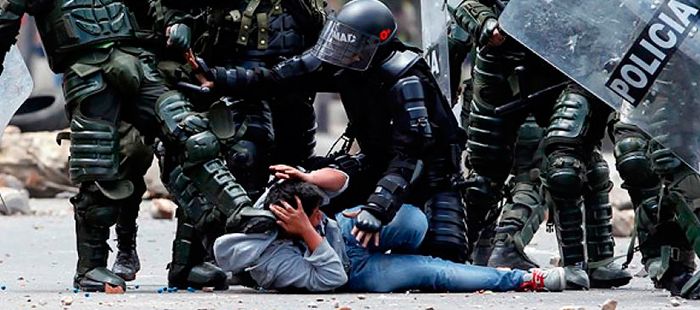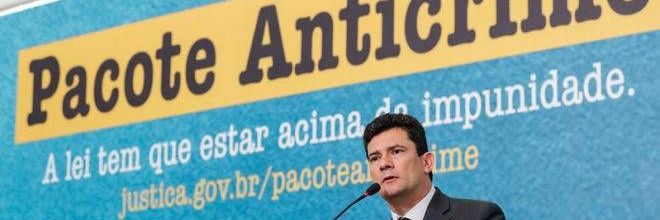
A tool designed by Directorio Legislativo to monitor
regulations with the potential to impact civic space
in Latin America and the Caribbean.
Fundación Directorio Legislativo | January 2020
About Civic Space Guardian (CSG)

Civic Space Guardian (CSG) is a tool designed by Directorio Legislativo to monitor regulations with the potential to impact civic space in Latin America and the Caribbean.
These are regulations affecting freedom of expression, freedom of association, freedom of peaceful assembly, citizen participation and access to public information. To provide a broader overview, we also include the rating assigned by Civicus according to the state of civic space in each country.
Executive creates multi-stakeholder forum with civil society representatives

Peru
Impact | Positive
Rating CIVICUS | Obstructed
On January 2, coinciding with the approval of its IV Open Government Partnership Action Plan, the Executive branch announced the creation of a Multi-stakeholder Forum tasked to propose open government priorities and monitor the fulfillment of the commitments assumed. It will be made up of 12 members, including four from Civil Society Organizations that have national and local presence and are working on issues contained in the Action Plan. The national Executive itself together with regional and local governments, the business sector and academia will also have a seat on the Forum. The selection process for civil society representatives will have two stages: first a call to participate, until February, and then a selection stage performed by an ad hoc committee, whose composition is to be conformed, until March 5.
Senate approves with changes a bill that criminalizes activities curbing free public movement

Chile
Impact | Negative
Probability | High
Rating CIVICUS | Narrowed
On January 13, the Senate passed a bill that seeks to include in the Criminal Code activities that compromise freedom of public movement through violent and intimidating means, and that sets out penalties for looting. The initiative is part of a package of bills promoted by the government intended to strengthen penalties for crimes against public order. The bill, which has already been passed in the Chamber of Deputies, underwent several modifications during the debate at the Senate. Among them, the incorporation of a new article that establishes a “minimum prison term” for individuals who, without authorization, completely block off the free circulation of people or vehicles in public settings through the use of violence, intimidation or physical obstacles. Due to the amendments introduced to the bill, the Chamber of Deputies must discuss it again in order for the initiative to be passed.
Deputies discuss bill to ban police use of non-lethal bullets

Chile
Impact | positive
Probability | Medium
Rating CIVICUS | Narrowed
On January 7, the Chamber of Deputies began studying a bill promoted by the opposition to prohibit ‘Carabineros’ (national police force) from using dissuasive means that may threaten the physical integrity in public demonstrations. The use of dissuasive means to restore public order must be reported to the National Institute of Human Rights and to Congress. Furthermore, the identification of reported members of the force must be made visible and legible at all times. The bill warns of the high number of injuries caused by the police’s use of non-lethal bullets in the protests that began in October: 1,915 between then and November 8.
Opposition prepares bill to scrap police riot squad

Colombia
Impact | Positive
Probability | Low
Rating CIVICUS | Repressed
Following the social unrest in December and amid repeated denunciations of excessive use of force and human rights violations by security forces, opposition senator Antonio Sanguino (Alianza Verde) announced he will be presenting a bill seeking to scrap the National Police’s Mobile Anti-Riot Squad (ESMAD). In its stead he proposes that the country’s departments and municipalities issue regulations to safeguard social protest and the coexistence and dialogue between citizens and public security forces. Sanguino has created a mechanism to enable citizens to make proposals and comments on the draft. It is expected to enter Congress in mid-March.
Civil associations may have access to a tax adjustment regime

Argentina
Impact | Positive
Rating CIVICUS | Narrowed
On December 21, Congress passed Law 27,541 on ‘Social Solidarity and Productive Reactivation’ declaring a state of economic, social and health emergency at the national level. Among other fiscal measures, the law establishes that non-profit entities may benefit from the alleviation of outstanding tax debts, social security payments for staff and interest rate charges, fines and other penalties, that were due as of November 30, 2019. Contributions to employee health cover and risk related insurance are not covered by the Law. Entities will be eligible for the scheme from February until April 30, 2020.
Civil society works with Congress to protect journalists and human rights defenders

Mexico
Impact | Positive
Rating CIVICUS | Repressed
On December 12, the Government Committee of the Mexican Chamber of Deputies held a meeting with Civil Society Organizations (CSOs) in which they were invited to collaborate in the elaboration of a package of measures for the protection of journalists and human rights defenders (HRDs). The Legislative branch and CSOs plan to work on the drafting of around twenty separate bills. The Committee is set to meet again at the end of January, though that has yet to be confirmed.
Congress passes Criminal Code reform without the most restrictive articles

Brazil
Impact | Positive
Rating CIVICUS | Obstructed
On December 11, the Senate passed an “anti-crime package” through which the government seeks to strengthen the criminal code. During its discussion in Congress, the opposition succeeded in having some of its more iliberal articles removed, among them one that sought to free from punishment police officers causing deaths in situations of “justified fear, surprise or violent emotion”. The regulations provide for the creation of the figure of the “Judge of Guarantees”, responsible for “verifying the legality of criminal investigations and safeguarding individual rights”. Despite this, and in line with his rhetoric of applying a “firm hand” and “zero tolerance” of crime, President Jair Bolsonaro signed a pardon for police and military officers convicted of crimes in self-defence or without intent, even when off duty.
Government to ban and punish CSOs working on political issues

Nicaragua
Impacto | Negativo
Rating CIVICUS | Repressed
The Ministry of Internal Affairs of Nicaragua issued via its website in mid-December a norm that regulates Civil Society Organizations (CSO) and prohibits them from “intervening in matters related to partisan politics”. The regulation stipulates that the legal representative of an CSO must sign a document with the Department for the Control of Associations in which it explicitly commits itself not to pursue projects, programs or actions of a political-partisan nature, directly or indirectly, as a condition for obtaining/retaining registration. Non-compliance may be sanctioned with the administrative seizure of the organization or it being stripped of its legal personality altogether. The resolution had been signed by the Ministry on April 11, 2019, but was not made public through official means until 8 months later.

Voices of civil society
COLOMBIA
NICARAGUA
Speaking of the new regulation on CSOs: “This is not a new measure; it is part of a historical process of persecution of civil society organizations that hold different views. Pressures have been continuous since 2007. Initially, these pressures consisted of threats, alienation, and persecution, but they have progressively institutionalized”.

Documents by Directorio Legislativo
Gender equity in the filling of legislative vacancies in Argentina
Venezuela in Focus: National Assembly on edge
We strengthen democracies in Latin America
We are a non-partisan and independent organization that for 10 years has been promoting the constitution of autonomous, flexible, democratic and independent spaces, through dialogue with various actors in the public, private, academic and civil society sectors. The starting point of our work arises from the recognition and appreciation of the political and social plurality of Latin America.

Fundación Directorio Legislativo
Avenida Entre Ríos, 258 – 3E
Ciudad Autónoma de Buenos Aires, Argentina (C1079ABP)
Phone (+5411) 5218-4647








